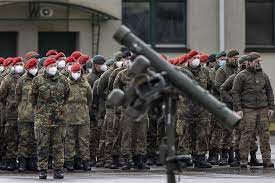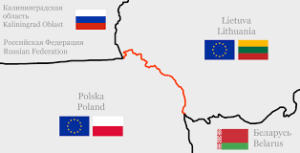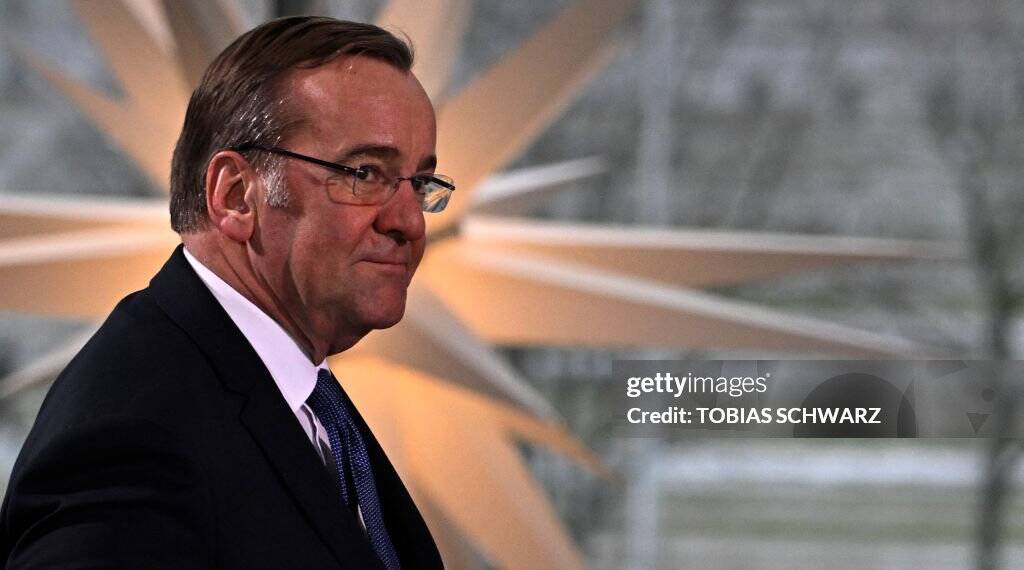Germany is currently taking precautions in anticipation of a potential conflict with Russia and NATO in the summer of 2025. The source of this information is classified documents, indicating that Germany is considering the possibility of an “open attack” by Russia on NATO after achieving significant successes against Ukraine. Moscow, however, has consistently denied any intentions of attacking the US-led military alliance and has derisively referred to the predictions as a “zodiac forecast.”
In response to the perceived threat, Defense Minister Boris Pistorius has advised the German populace to brace for the possibility of another war with Russia. Despite Moscow dismissing claims of planning an attack on NATO as “complete nonsense,” Pistorius emphasizes the importance of Germany and its NATO allies being prepared to counter any potential Russian aggression.
Join us on Telegram: https://t.me/tfiglobal
In an interview with German public broadcaster ZDF on Monday, the defense chief highlighted that Germany, while not presently facing a direct threat of attack, deems it prudent to enhance its preparedness.
Regarding the hypothetical scenario of a Russian attack on the Baltics, Pistorius indicated that Berlin is establishing the “Lithuania Brigade” specifically tailored to address such concerns. Consisting of approximately 4,800 soldiers, this unit is anticipated to be operational by 2027, marking the first instance since World War II of a German force being permanently stationed abroad.

Does the creation of the ‘Lithuania Brigade’ by Germany signify a proactive response to a potential Russian threat, or is it an exaggerated measure fueled by the ‘zodiac forecast’ narrative?
Pistorius expressed the view that, given the ongoing Ukraine conflict, Russia would require several years to prepare for a comprehensive offensive. Consequently, he recommended that Western nations utilize this timeframe judiciously to intensify their armaments in anticipation of potential hostilities.
Read More: Lol, Germany – The Drama Queen
According to a confidential document from the German defense ministry, reportedly reviewed by the outlet, a detailed month-by-month scenario outlines a potential “path to the conflict” between the West and Russia. Commencing with a new mobilization in February 2024, Russia is depicted as calling up an additional 200,000 troops, although Moscow has refuted the necessity for such measures, citing a surplus of volunteers.
The unfolding crisis prompts a military buildup by Russia in western Russia, Belarus, and Kaliningrad. Concurrently, Moscow positions itself to seize the Suwalki Gap, a narrow land strip in northeast Poland between Belarus and Kaliningrad, leading to “riots with numerous deaths.” In response, Russia accuses NATO of preparing to attack the country. The paper outlines a comprehensive sequence of events, shedding light on the potential developments in the evolving geopolitical landscape.

During a NATO Council meeting in January 2025, Poland and the Baltic states raise concerns about an “increasing threat from Russia.” In response, Moscow seizes the opportunity and, in March 2025, deploys additional troops to its border areas. Germany, amid escalating tensions, contributes 30,000 troops to NATO’s build-up efforts.
Amid ongoing tensions, is Germany’s contribution of 30,000 troops to NATO’s build-up efforts an overreaction to Russia’s alleged military actions outlined in the classified document?
Read More: Germany’s Economic Rollercoaster: Was Playing Superhero a Costly Mistake?
As outlined in the strategic forecast, NATO, in May 2025, decides on “measures for credible deterrence.” The scenario concludes at this juncture, with Bild highlighting the uncertainty of whether Russia would choose to de-escalate under these circumstances.
Russian Foreign Ministry spokeswoman Maria Zakharova dismisses the report, deriding it as a “last year’s powerful zodiac forecast.” Meanwhile, President Vladimir Putin refutes any plans to attack NATO, asserting a lack of geopolitical, economic, or military interest in such a conflict. Nevertheless, Russia has persistently voiced concerns about the alliance’s expansion towards its borders, perceiving it as an existential threat. Putin attributes the ongoing conflict partly to Ukraine’s aspirations to join the bloc.








